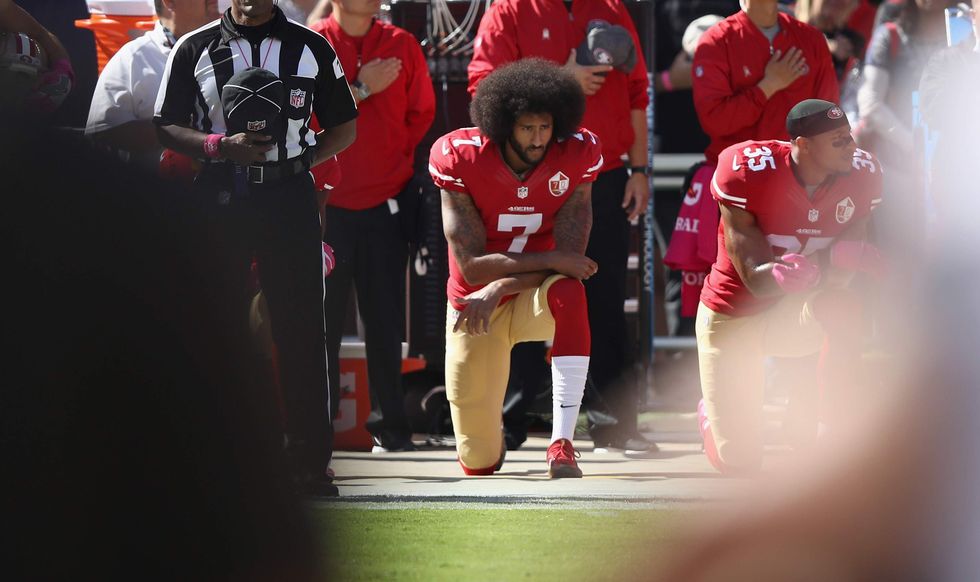
Colin Kaepernick, then quarterback of the San Francisco 49ers, started the player protest movement for the national anthem in 2016. Kaepernick has touched off copycat protests that have reached high school football players and younger. Last week, a federal judge in California ruled that school districts cannot prohibit these protests. (Ezra Shaw/Getty Images)



